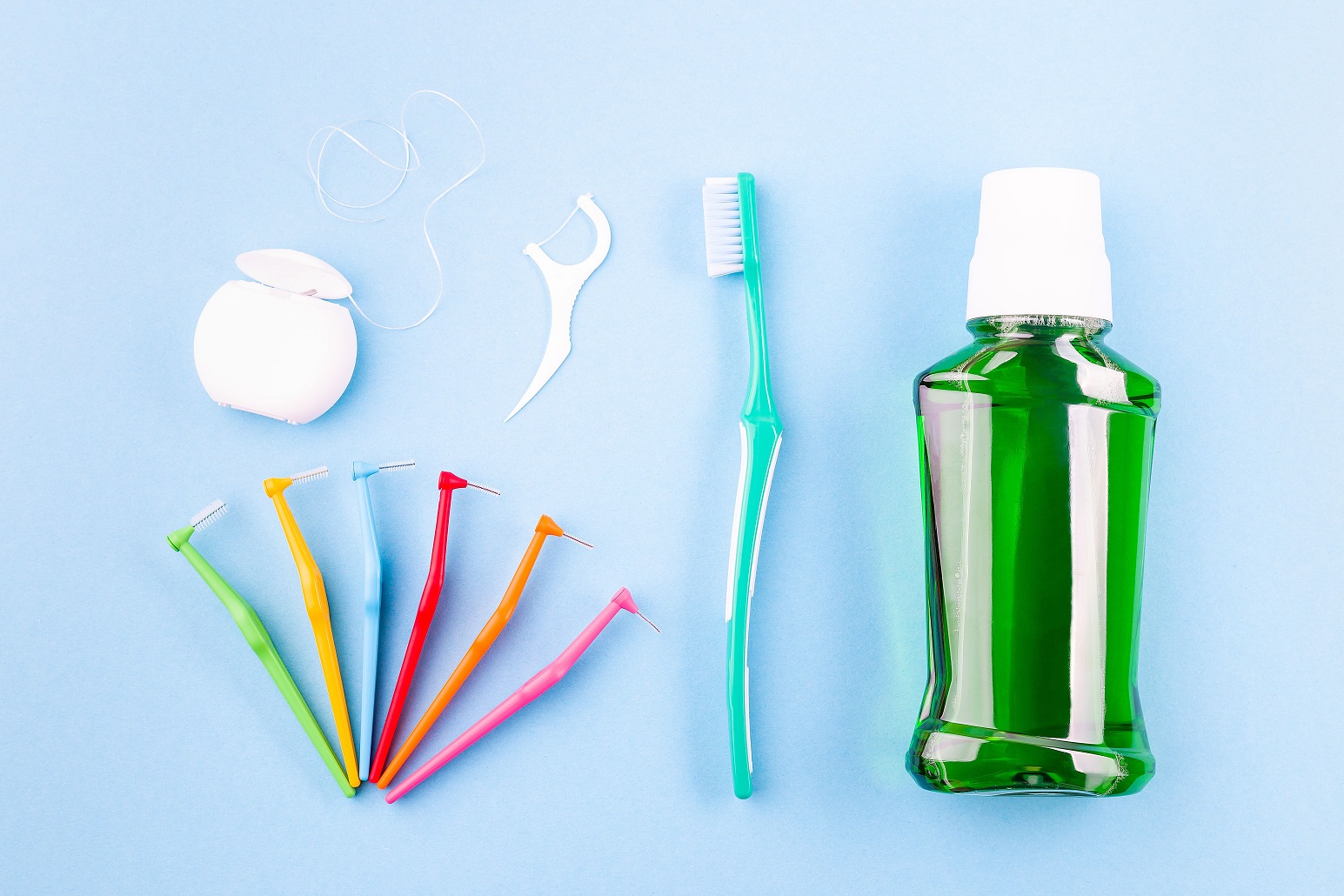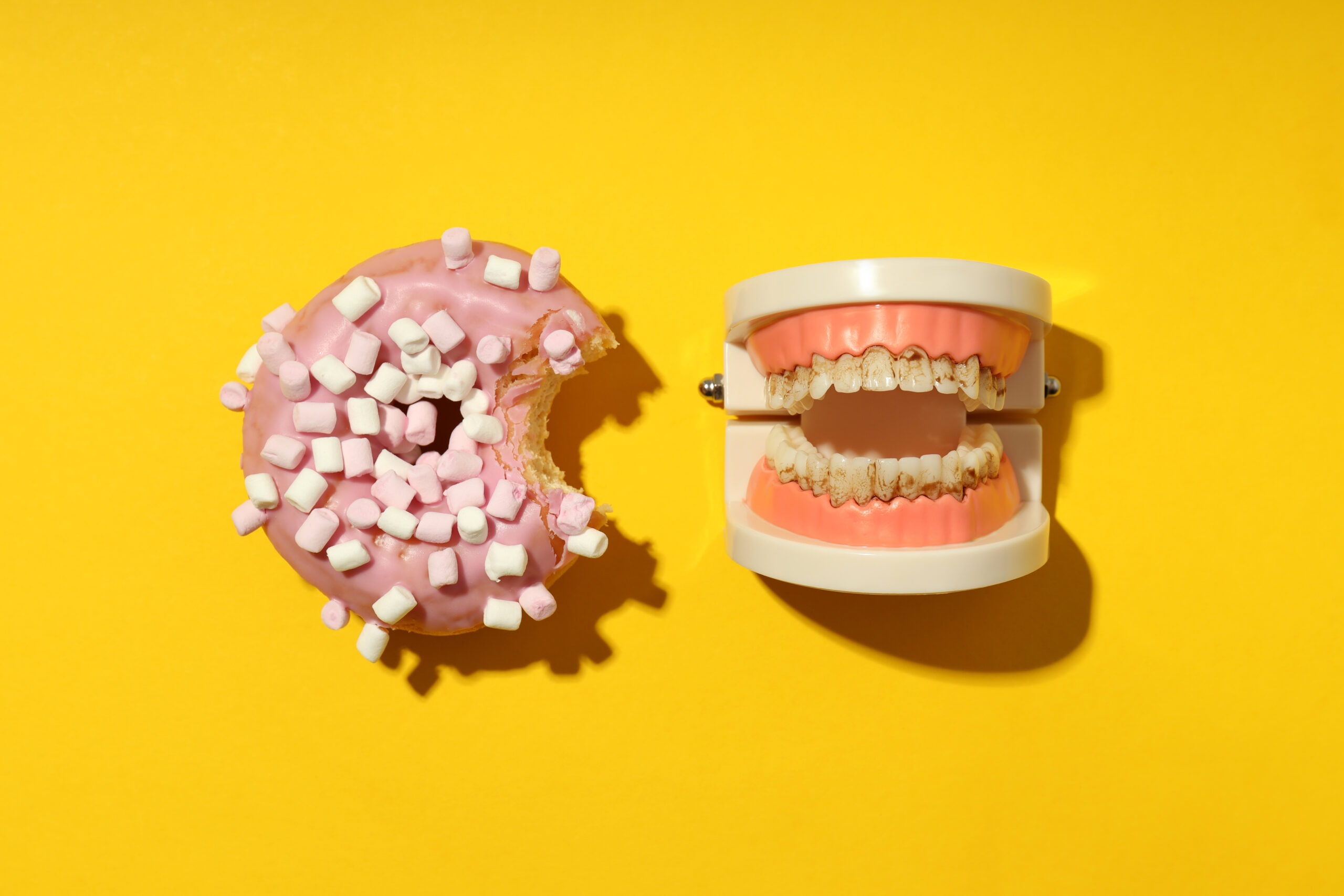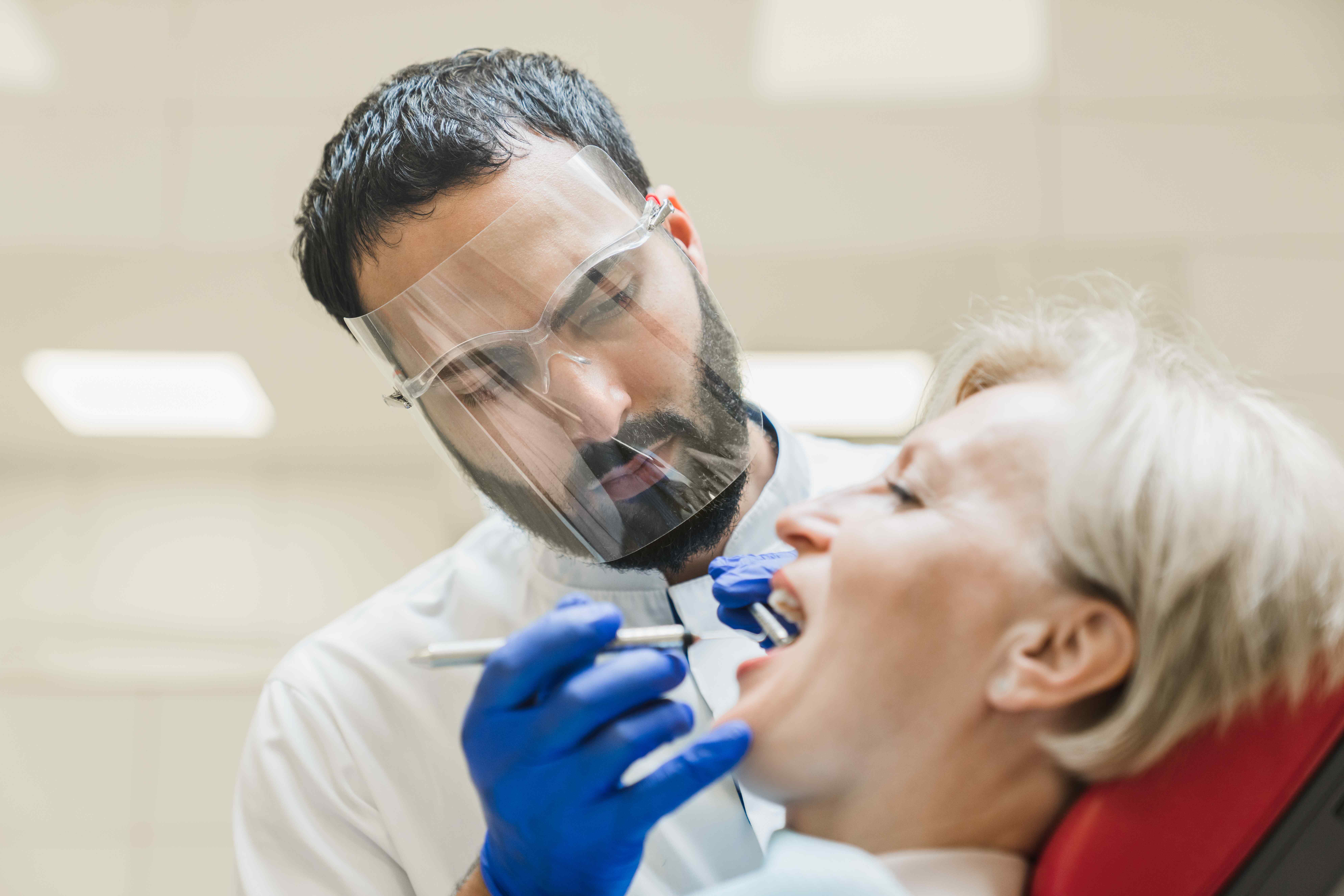Tooth decay is one of the most common chronic health issues worldwide, affecting individuals of…

Choosing the Right Oral Care Tools: A Comprehensive Guide
Choosing the right oral care tools is essential for maintaining good oral hygiene and preventing dental issues. Making informed decisions about these tools helps ensure effective cleaning and protection of your teeth and gums.
In this guide, the Center for Restorative, Cosmetic, and Implant Dentistry (CRCID) will explore a range of essential oral care tools:
- Toothbrushes: Manual and electric variants
- Flossing Tools: Dental floss and interdental brushes
- Mouthwash: Fluoride and antibacterial options
- Interdental Tools: Brushes and water flossers
- Tongue Cleaners: For comprehensive hygiene
- Specialized Tools: Tailored for braces or implants
Regular professional dental visits to CRCID play a crucial role in maintaining optimal oral health. These visits complement your daily at-home care by providing expert insights and personalized advice on how to best use these tools. Together, they form a powerful duo in safeguarding your smile’s health.
Understanding Different Types of Toothbrushes
Navigating the world of toothbrush varieties can be a game-changer for your oral health. Here’s what you need to know about manual and electric toothbrushes.
Manual Toothbrushes
Manual toothbrushes are a staple in oral care routines due to their accessibility and ease of use. They are generally cheaper than electric models, making them accessible for all budgets. In addition, manual toothbrushes allow you to have full control over brushing pressure and technique.
When choosing a manual toothbrush, soft bristles are highly recommended. They effectively clean teeth while minimizing the risk of gum damage or enamel erosion. Additionally, a smaller head size can help reach tricky areas at the back of the mouth.
Electric Toothbrushes
Electric toothbrushes bring advanced technology into daily brushing habits. There are two main types:
- Sonic: Deliver high-frequency vibrations that create fluid dynamics, helping to dislodge plaque beyond the physical reach of bristles.
- Oscillating-Rotating: Feature small, round heads that rotate and oscillate to break up plaque effectively.
These variants excel in plaque control, making them particularly beneficial for individuals with limited dexterity or those seeking enhanced cleaning power. Studies have shown electric brushes, especially oscillating-rotating models, significantly reduce gingivitis compared to their manual counterparts.
Choosing between manual and electric depends on personal preference and specific dental needs, ensuring a tailored approach to oral hygiene. Talk to your CRCID dentist to discuss what options are best for you.
The Importance of Dental Floss in Your Oral Care Routine
Dental floss plays a crucial role in maintaining oral health by reaching those tight spaces between teeth where toothbrush bristles cannot. Understanding the types of dental floss available helps tailor your oral care routine to your specific needs.
- Unwaxed Floss: Composed of thin nylon strands, unwaxed floss is ideal for closely spaced teeth. It provides a squeaky-clean feeling but may be prone to shredding.
- Waxed Floss: Coated with a light layer of wax, this type glides more easily between teeth, reducing the risk of fraying or breaking. It’s perfect for those with tighter contacts or dental work.
- PTFE (Non-Stick) Floss: Known for its durability and ease of use, PTFE floss slides effortlessly between teeth while minimizing irritation to gums.
Regular flossing is essential for effective plaque removal and gum maintenance. By disrupting plaque buildup, flossing helps prevent cavities and gingivitis, contributing to healthier gums and teeth. Incorporating the right type of floss into your daily regimen not only enhances oral hygiene but also promotes long-term dental health.
Mouthwash: A Key Component in Oral Care
Mouthwash is an important part of oral care routines, offering benefits that go beyond just freshening breath. There are different types of mouthwashes available, each with its own specific advantages for oral health.
Benefits of Fluoride Mouthwashes
Fluoride mouthwashes are particularly beneficial for enhancing cavity prevention and strengthening enamel. The fluoride content serves as a protective barrier, helping to remineralize tooth surfaces and reduce the risk of decay.
Advantages of Antibacterial Mouthwashes
On the other hand, antibacterial mouthwashes excel in reducing gingivitis and periodontal issues. These formulations often contain antimicrobial agents that target harmful bacteria responsible for gum inflammation and infection. This can be especially advantageous for individuals prone to gum disease.
Choosing the Right Mouthwash
When selecting a mouthwash, consider categories such as fluoride and alcohol-free options. Alcohol-free variants are ideal for those with sensitive mouths or who prefer a gentler rinse experience. Ensuring the right choice can significantly contribute to maintaining healthy gums and teeth while fitting seamlessly into daily oral care practices.
Exploring Interdental Tools for Effective Cleaning Between Teeth Spaces
Maintaining oral hygiene involves more than just brushing and flossing. Interdental tools have emerged as essential devices to address areas that are often missed by conventional methods.
Interdental Brushes
These small brushes are designed to clean the spaces between your teeth, which are notoriously difficult for regular toothbrushes to reach. They’re particularly useful for dislodging food particles and plaque. For those with braces or other dental work like bridges, interdental brushes can maneuver around brackets and wires, ensuring thorough cleaning without causing damage.
Water Flossers and Picks
Patients with limited dexterity may find water flossers and picks beneficial. These tools use a stream of pulsating water to remove debris and plaque, offering a gentle yet effective alternative to traditional flossing. The gentle action of water flossers can be less abrasive on gums, making them suitable for people with sensitive oral tissues or gum disease.
These tools enhance your daily oral care routine by reaching places your toothbrush can’t, contributing to healthier gums and a cleaner mouth.
Specialized Oral Care Tools for Patients with Unique Needs
Selecting the right tools for specific oral care needs can make all the difference in maintaining a healthy smile. For individuals with braces, brushes and flossettes designed specifically for orthodontic appliances prove invaluable. These tools feature specialized bristle patterns and slender designs to navigate around brackets and wires, ensuring thorough cleaning without damaging the hardware.
Patients with implants or veneers require tools that provide effective cleaning while preserving the integrity of their dental work. Options such as ultra-soft toothbrushes and non-abrasive interdental cleaners are recommended to prevent damage to delicate surfaces. Additionally, water flossers offer a gentle yet efficient method for removing plaque without applying excessive pressure on implants or veneer edges.
Using these specialized tools not only aids in maintaining oral hygiene but also extends the lifespan of orthodontic and prosthetic dental work, contributing to a healthier mouth overall.
The Role of Tongue Cleaners in Maintaining Fresh Breath
When it comes to complete mouth care, tongue cleaners play a crucial but often overlooked role. These tools are designed to remove bacteria, food particles, and dead cells that build up on the surface of the tongue. If not cleaned regularly, these substances can lead to bad breath and even affect how we taste things.
1. Enhancing Breath Freshness
By adding tongue cleaners to your daily routine, you can significantly reduce the main causes of bad breath (halitosis). The tongue is home to a large number of bacteria that produce unpleasant smells. A quick scrape with a tongue cleaner can make a huge difference in freshening your breath.
2. Promoting Overall Oral Health
In addition to freshening your breath, using a tongue cleaner helps maintain a balanced mouth environment. It works alongside brushing and flossing by reaching areas that these tools can’t access, ensuring your mouth feels clean and healthy all day long.
For those looking for tongue cleaners to freshen breath, there are various options available such as scrapers or brushes, each designed to suit individual preferences and comfort levels. Adding this simple tool into your routine can boost both confidence and oral health.
Tailoring Oral Care Tools for Different Age Groups
Selecting the right oral care tools is crucial, particularly when considering the unique needs of different age groups.
Oral Care Tools for Children
For young children, using age-appropriate toothbrushes is vital. These are typically smaller in size with soft bristles to cater to their delicate gums and developing teeth. Toothbrushes that feature popular cartoon characters can make brushing more appealing to kids, turning a routine task into an engaging activity. Additionally, flavored toothpaste options like bubblegum or fruity variants often encourage children to brush regularly by making the experience more enjoyable.
Oral Care Tools for Older Adults
As we age, oral care needs shift significantly. Older adults may experience sensitivity or have limited dexterity, necessitating softer toothbrushes that minimize gum irritation while still effectively cleaning teeth. Options such as electric toothbrushes with ergonomic handles can provide ease of use and thorough cleaning for those who might struggle with manual brushing techniques.
The Importance of Flossing Aids
Flossing aids also play a pivotal role in maintaining oral health across all ages. For elderly individuals, specialized flossing tools such as floss holders or interdental brushes offer convenience and accessibility, ensuring they can maintain oral hygiene comfortably without compromising on effectiveness.
Each life stage presents unique challenges and preferences; selecting tailored tools ensures comprehensive care throughout one’s lifetime.
The Importance of Regular Professional Dental Visits Alongside Daily Oral Care Practices
The significance of professional dental care at CRCID cannot be overstated. Regular check-ups play a crucial role in maintaining optimal oral health by allowing dentists to identify and address issues early, preventing them from developing into more serious problems. These professional evaluations are essential for monitoring oral conditions that might go unnoticed at home.
Routine cleanings complement daily at-home care efforts:
- Plaque and Tartar Removal: Professional cleanings remove plaque and tartar build-up that regular brushing and flossing might miss.
- Oral Health Advice: Dentists provide personalized guidance on improving your oral hygiene routine, tailored to your specific needs.
- Preventative Care: Early detection of cavities, gum disease, or other oral conditions ensures timely intervention.
By blending consistent at-home practices with professional care, individuals can achieve a comprehensive approach to oral health maintenance.
Our caring team at the Center for Restorative, Cosmetic, and Implant Dentistry is here to serve patients in the Chesapeake and Virginia Beach, VA areas. Contact us today to make an appointment. Your dental health and bright smile are our priorities!


